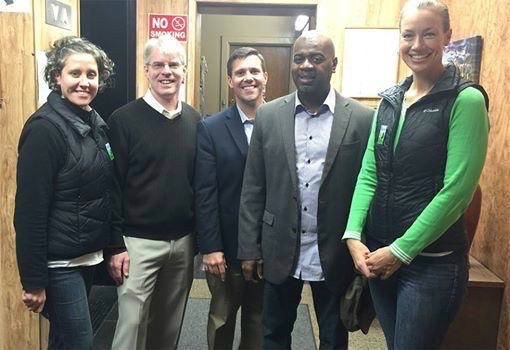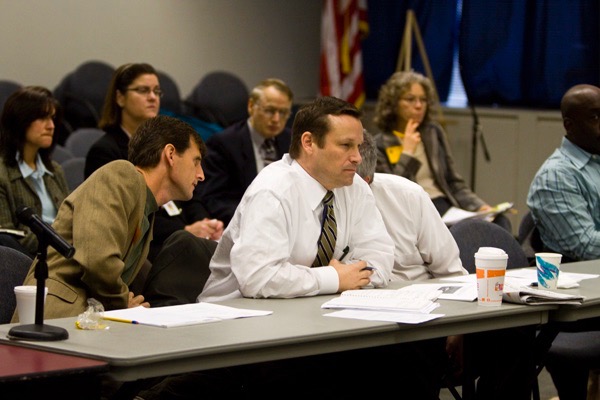Environmental Justice Bill Will Not Work
Fake EJ Advocates Compromised and Sold You Out
Dangerous Illusions
“I am growing tired of seeing myself, and especially of seeing veteran militants who ‘never ran from struggles’ in their own times, receive countless lessons in effectiveness from critics who have done nothing more than point their ‘seats in the direction of history.’” ~~~ Camus
Look, I’m an old white guy living in a school bus in the Rocky Mountains and desert. I grew up in a working class family, in a predominately white suburb, attended elite universities, and spent my adult life and career in a professional capacity mostly working on public policy. So I’m not on the ground in NJ right now and engaged in black life and EJ activism and I don’t pretend to be.
But, I have over 30 years experience and am an expert on NJ’s environmental laws and with DEP as an institution. I know a lot about DEP’s role in protecting public health and the environment and have worked with NJ EJ activists. I have longstanding commitments to “living in truth” and social and economic justice, including environmental justice. And I’ve taken personal and career risks and paid the price for those commitments:
Today’s liberal classes believe only in one thing: maintaining their privilege. Their one priority is power. The number one rule is: preserve our careers, our institutions at all cost. (original source: THE LIBERAL CLASS IS COMPLICIT IN MASS MURDER
I don’t need to tell you what you already know, but you’ve been – at best – ignored and neglected by NJ’s environmental laws and DEP for decades. (I argue affirmative structural racism and class warfare are operating).
Elite NJ conservation and environmental groups cynically have used your community as a prop in their fundraising campaigns.
And NJ politicians have provided lip service and empty platitudes.
The disproportionate burden of pollution you now experience on a daily basis is all legal under NJ’s environmental laws and allowed under DEP permits.
Those permits have ignored your community, your health, and the cumulative impacts created by all the individual pollution permits DEP issues.
But you don’t have to take my word for it.
Heres’ what US District Court Judge Orlofsky found, 18 YEARS ago in case known as in South Camden Citizens v. NJ Dept. of Environ., 145 F. Supp. 2d 446 (D.N.J. 2001) (emphases mine):
As described in greater detail in this Court’s Findings of Fact and Conclusions of Law set forth below, the NJDEP granted the necessary air permits to SLC to allow its proposed facility to begin operations. In doing so, the NJDEP considered only whether the facility’s emissions would exceed technical emissions standards for specific pollutants, especially dust. Indeed, much of what this case is about is what the NJDEP failed to consider. It did not consider the level of ozone generated by the truck traffic to and from the SLC facility, notwithstanding the fact that the Waterfront South community is not currently in compliance with the National Ambient Air Quality Standard (“NAAQS”) established by the EPA for ozone levels, nor did it consider the presence of many other pollutants in Waterfront South. It did not consider the pre-existing poor health of the residents of Waterfront South, nor did it consider the cumulative environmental burden already borne by this impoverished community. Finally, and perhaps most importantly, the NJDEP failed to consider the racial and ethnic composition of the population of Waterfront South.
Which takes us to Gov. Murphy’s approval of “environmental justice” legislation, which is most recent example of a longstanding pattern of neglect, manipulation, and political platitudes.
The Gov. and his sycophants – some of them black and self described EJ activists – claim that this law is “groundbreaking” and a “national model”.
They are not telling the truth.
First of all, as I’ve written in detail, the law does nothing to change the legal, scientific and regulatory basis for issuing all those permits that Judge Orlofsky criticized and have created all that undue pollution burden in your communities.
Nothing. DEP can continue to conduct risk assessments that ignore the actual health status of the community and actual on the ground conditions in the community. DEP can continue to issue permits that ignore EJ concerns, just as Judge Orlofsky found. The EJ law does not require that these flawed DEP regulations and permit methods be changed. Instead of doing that hard work, the law grafts a flawed EJ impact statement on to a flawed DEP regulatory foundation.
Covanta and the refineries and the chemical plants will continue to poison you – or the Fatal Fifteen or a bomb train might outright kill you – and all this now with a happy corporate PR “Sustainable” cum “EJ commitment” and seal of approval from NJ DEP. You can thank you brother EJ advocates for that.For details, see:
The Gov. and EJ advocates rely on 3 important things the bill does do, purportedly to address longstanding undue and unjust pollution burdens in low income and black communities:
1. The law authorizes DEP to deny certain permits in EJ communities and mandates that DEP deny the permit if disproportionate burdens are found.
2. The law authorizes DEP to consider cumulative impacts from multiple sources of pollution.
3. The law requires that certain permit applicants prepare an “environmental justice impact statement” and provides the community an opportunity to review and comment on it.
But these potentially powerful tools are mostly just window dressing. They won’t work and won’t change anything.
They all were effectively gutted by other provisions of the law. The so called EJ advocates caved in to these polluter driven political concessions. Let me explain briefly:
1. The DEP permit denial authority is narrow in scope and gutted by huge loophole.
The denial power applies only to NEW pollution sources, not the existing sources of pollution that are creating the current unhealthy burdens. DEP may only impose “conditions” on the renewal of permits for existing pollution. The law does not mandate a “nexus”, i.e. that these DEP imposed “conditions” actually reduce pollution or mitigate its harm. This invites abuse, as in the Covanta garbage incinerators Newark deal, which provided, among other things, $5 million for a sports stadium.
When those deals are made, you can be sure that the well connected will benefit, while the community suffers. The so called “activists” and their organizations that supported this sell out have already and will continue to benefit economically from selling out communities as they get grants and other benefits from the “conditions” imposed by DEP.
Worse, the DEP permit denial authority is destroyed by an “exception” – a huge loophole provision that allows DEP to waive the mandatory permit denial and issue the permit if a polluter claims that there is a “compelling public interest” for the industry or facility seeking the permit, even if there are disproportionate and unjust impacts.
There are no definitions, standards or limits on what a “compelling public interest” is, so anything goes. And polluters are provided a new legal platform they never had to make this “compelling public interest” argument and can legally challenge DEP’s refusal to waive the law on this basis. As such, the EJ law actually weakens current environmental law.
2. The cumulative impact provision was turned into a joke.
First of all, the law applies only to air pollution sources that emit more than 100 tons per year. That is HUGE, especially for emissions of cancer causing hazardous air pollutants (HAPs). Smaller pollution sources that create local pollution “hot spots” like DEP found in Paterson NJ (e.g. industry emitting HAP’s next door to a school) and unacceptable cumulative pollution are not regulated by the law.
Second, the law does not apply to so called “mobile sources” of pollution that account for significant pollution (i.e. cars, trucks, buses, airplanes, ships, railroad engines) because DEP does not issue permits to these sources.
Last, a major source or health risks in EJ communities – i.e. toxic waste sites – were exempted from the law.
How can anyone with a straight face say that “cumulative impacts” don’t include smaller air pollution sources, mobile sources, and toxic waste sites?
3. The “environmental justice statement” will not work.
The law does not include any content requirements or scientific standards for an acceptable EJ impact statement.
The EJ impact statement will be written by consultants for the polluter, not by those employed by the community.
**There are no resources (e.g. technical assistance grants, as under other environmental programs) provided to the community so that they can hire expert consultants and effectively participate in the highly scientific and legally complex EJ impact statement preparation and review process.
[**Clarification: the bill provides authority, but does not mandate, that DEP impose fees on the permit applicant in order to provide technical assistance to the community. But the DEP. will provide this technical assistance. The community can not hire their own expert with this DEP money.]
We’ve seen this story before and know how it turns out after decades of fighting industry prepared environmental impact statements.
Adding insult to injury, the law deleted a prior provision that would have given local governments a veto power, so local activists have been neutered and reduced to playing DEP’s game on the polluters turf.
4. Despite a Climate Emergency, There is No Climate Justice.
Finally, the Governor and the EJ advocates do not say anything about what the bill fails to include.
I’ll mention just one huge omission (there are several):
The law does not apply to emissions of greenhouse gases and does not authorize DEP to require that polluters reduce those emissions, install energy conservation or energy efficiency, or renewable energy technologies.
The law does not apply to the impacts from climate change, particularly extreme heat waves and urban heat island effects that are now killing people in cities.
The law does not apply to adaptation to climate change and does not authorize DEP to impose conditions that require industry and developers to adapt to climate change.
Remarkably, the law can not provide ‘climate justice” – including all the local jobs that would be created to address climate issues the law ignores.
So, my friends, sorry: you were just sold out and lied to. And it wasn’t the first time.
End Note – if anyone thought my prior photo of Dave Pringle was an aberration or cheap shot, here’s a contemporaneous shot of Pringle whispering in the ears of his friend from NJ BIA and Chamber of Commerce:



Pingback: WolfeNotes.com » In Walking Back Absurd Climate Remarks, Murphy DEP Goes From The Frying Pan To The Fire
Pingback: WolfeNotes.com » Questions For Senator Booker and EJ Advocates At NJ Spotlight’s Roundtable On NJ’s “Landmark” EJ Law
Pingback: WolfeNotes.com » Murphy DEP Admits That Pipeline Construction Regulations And DEP Oversight Are Lax
Pingback: WolfeNotes.com » Words And Pictures Tell The Same Sad Story
Pingback: WolfeNotes.com » Cracks Begin To Show In The Facade Of NJ Gov. Murphy’s “Landmark Environmental Justice” Legislation
Pingback: WolfeNotes.com » Environmental Justice Advocates Call On Gov. Murphy To Kill Proposed Fossil Power Plant In Newark
Pingback: 파워볼분석기
Pingback: WolfeNotes.com » Murphy DEP Attempt To Close Huge Loophole In Environmental Justice Law Is Doomed To Failure